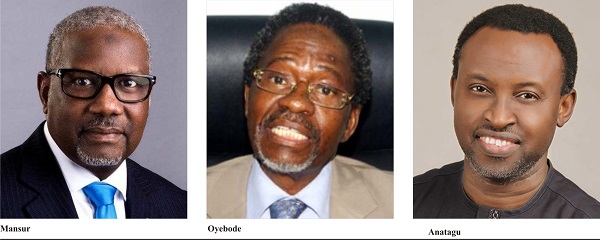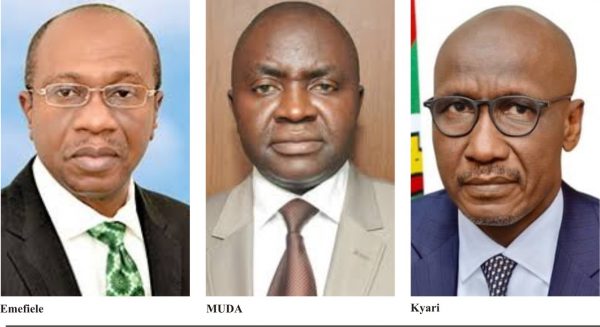Why AfCFTA Struggles For Requisite Traction Amid Opportunities
By Kenneth Jukpor
Despite having a celebrated role as a crucial driver for economic growth, industrialization and sustainable development in the African continent, the African Continental Free Trade Area (AfCFTA) has been described as a deferred dream yet to get the required environment for take-off.
This was the position of a Professor of International Law and Jurisprudence, Akin Oyebode, last week as he labeled AfCFTA as a dream deferred, which has not secured requisite traction since its take-off.
The similarity in the goods and products of the different African countries, Oyebode said, did not avail the complementarities which diversity would have facilitated.
Oyebode, who was the keynote speaker, said this at the 45th yearly conference of the Institute of Chartered Secretaries and Administrators of Nigeria (ICSAN), where he spoke on the theme: ‘The African Continental Free Trade Area (AfCFTA) and National Development: Issues, Challenges and Opportunities.
He lamented that the failure by many of the state parties to transform AfCFTA Act into domestic laws has also not helped matters, stating that out of plain fear or docility, many African countries have been unable to be assertive or stand up to the wiles of imperialism.
With immense benefits of the AfCFTA, according to him, if properly harnessed, it can become the panacea for the multifarious socio-economic difficulties afflicting the various African countries.
He advised that the synergy activated by synchronization with programmes, policies and plans of other African countries should be tapped by the member-states to jump-start their economies to a higher level.
Noting that the role of the AfCFTA might be marginal, where and when policies are not well-thought-out, he added that the exponential rise in the market should also be a stimulus to the productive base of the various economies and serve as an antidote to an increase in unemployment, underemployment and general impoverishment of the African population.
The Minister of Industry, Trade and Investment, Niyi Adebayo, who emphasised the importance of public-private partnership in the AfCFTA deal, restated commitment to ensuring that the private sector took its rightful role as key drivers in the agreement.
Noting that AfCFTA provides the right opportunity to unlock the country’s potential for growth, he expressed the ministry’s interest in collaborating with ICSAN to enthrone principles of ethics and corporate governance, which he said was germane to the success of the agreement.
According to him, businesses must be built on trust and principles that ensure sustainability, which is a key driver to economic growth.
Director, Policy, Nigeria Export Processing Zones Authority (NEPZA), Dr. Oyesola Oyekunle, stressed that closing Nigeria’s infrastructural gap would not only boost economic growth but also give the country a competitive advantage under the AfCFTA.
Noting that Nigeria’s growing infrastructure deficit remained a major concern, he called on policymakers to prioritise investments in regional infrastructure to catalyse integration and facilitate intercontinental trade.
He revealed that the Nigerian geographical terrain has been littered with abandoned projects since 2011, where the Federal Government established a Project Assessment Committee, which identified and recorded 11,866 projects that have been abandoned for a myriad of reasons.
To this end, he called for the strengthening of the Infrastructure Concession Regulatory Commission (ICRC), with human, material resources and legal framework to enable it to perform maximally in the realisation of its set objectives.
Recently, Nigerian Shippers’ Council (NSC) hosted the nation’s AfCFTA implementation team to review preparedness from the port sector.
The Executive Secretary, NSC, Hon. Emmanuel Jime, listed key issues to be addressed to make Nigeria a maritime hub in the region as the nation tries to open up business opportunities in AfCFTA expected to boost intra-African trade by 52.3% once import duties and non-tariff barriers are eliminated.
Jime, who was represented by Chief Cajetan Agu, Director Consumer Affair of the council, noted the Logistics Performance Index (LPI) as one of the key indicators Nigeria has to address to enable the country to benefit adequately from AfCFTA.
“On the LPI rating, the first is South Africa, followed by Egypt and Kenya; Nigeria is number 14, globally we are 110. The second indicator is the dwell time of cargo at our ports; this measures the clearance time of cargo at port. The port in Durban, South Africa and Lome port is 4-days, Apapa port is hovering over 20 to 22 days.”
“Another issue is connectivity rating, our closeness to the global market. South Africa is first, globally 52; Egypt second and globally 58; Nigeria is 8 and globally 75,” he said.
He added that in the Nigerian port sector, road, rails, inland infrastructure, coupled with the perennial and embarrassing gridlock on our port access roads, may not cope with the anticipated increase in economic activities occasioned by AfCFTA, adding that there is a dire need to provide scanners at the ports, fast track the development of deep seaports and improve the agricultural value chain.
Also speaking at the event, a Director at the Council for the Regulation of Freight Forwarding in Nigeria (CRFFN), Dr. Alban Igwe harped on the need for Nigeria to have an efficient multimodal transport system.
According to him, the fact that Nigeria has not signed the convention on carriage of goods that will help improve all the services across all modes could be a limitation with the continental trade agreement.
“There is a need to address the Logistics Performance Index of the country, create timeline and task lines to enable us achieve things at the right time and know which agency is responsible,” he said.
Meanwhile, the National Coordinator, Action Committee on AfCFTA, Mr. Francis Anatogu, posited that Nigeria focuses on some goals to help reap the benefits of the regional trade, such as; to grow productive workforce, engender friendly business environment, grow local demand, among others.
His words: “As we are gearing up for the AfCFTA implementation, there should be opportunities for input from stakeholders across various sectors. We have held six engagements in the maritime sector alone and developed several working committees. There is already a strategy for the implementation but it has to go round for stakeholders to make inputs. Valuable comments from stakeholders should form what goes into the nation’s final implementation plan.”
On his part, the representative of Lagos Chamber of Commerce and Industry (LCCI) Freight Forwarding Group, lamented that freight cost from Nigeria to Ghana has become more costly than China to Nigeria.
The LCCI representative also wondered what role the Economic Community of West African States (ECOWAS) Trade Liberalization Scheme would play under the AfCFTA regime.
Manufacturers Association of Nigeria (MAN), however, identified the challenges with power supply and high costs of electricity, long dwell time of cargoes at the ports, extortion and long bureaucratic processes and poor road infrastructure as burning issues to be addressed at the ports.
The MAN representative stressed that these issues were the arguments that the group put forward at the presidency which saw the nation delay in signing the AfCFTA agreement.
“MAN delayed Nigeria’s participation in AfCFTA because of these lapses which place the country in a disadvantaged position. We eventually agreed with the Presidency that the issues would be addressed speedily to enhance the nation’s position but the issues remain,” he said.








